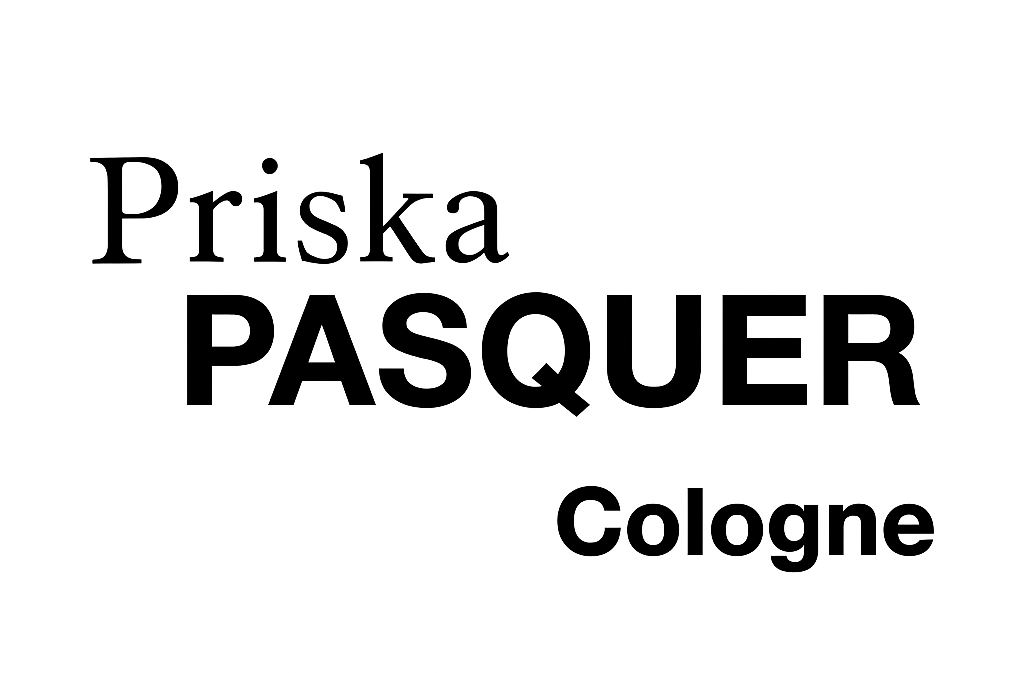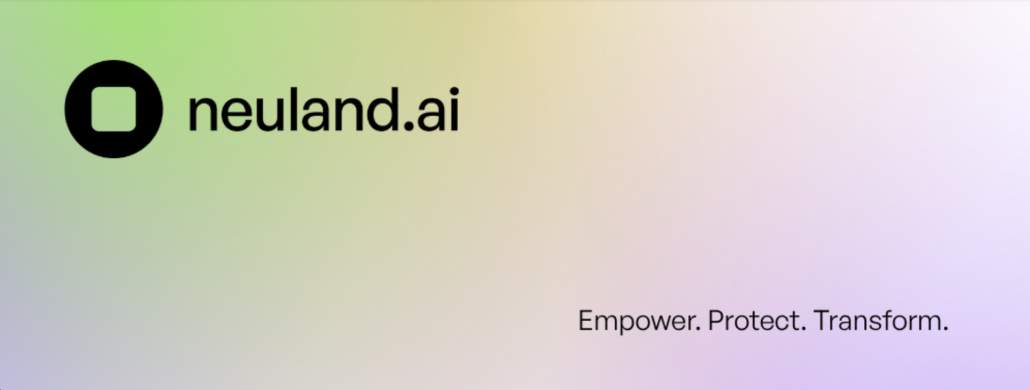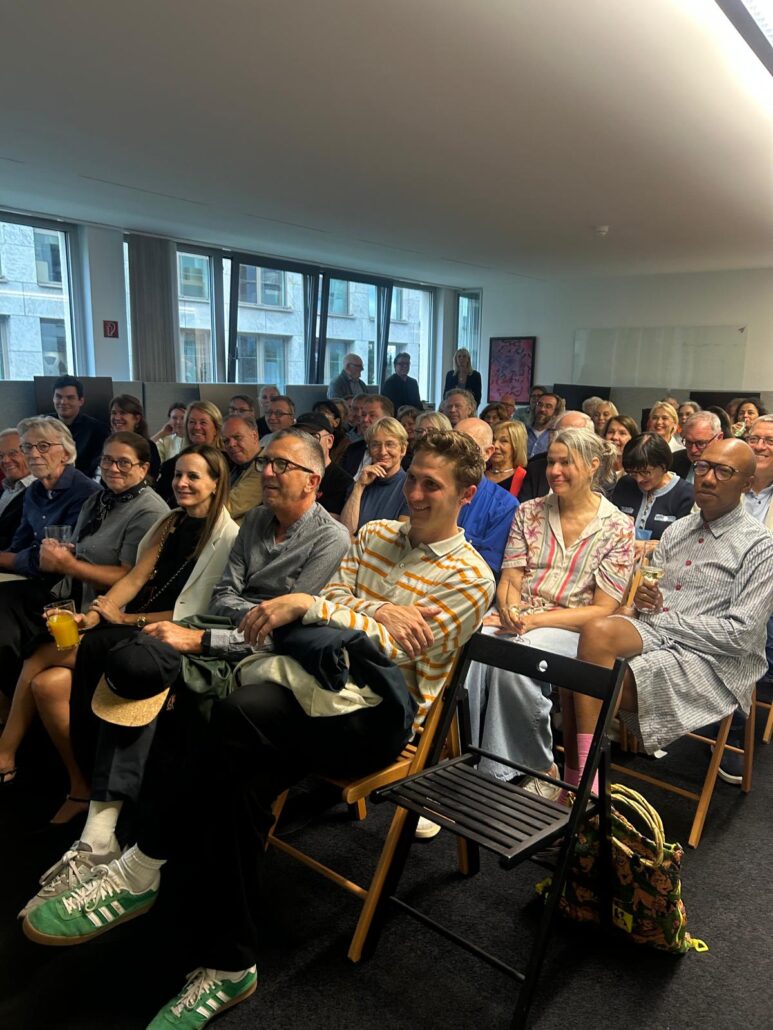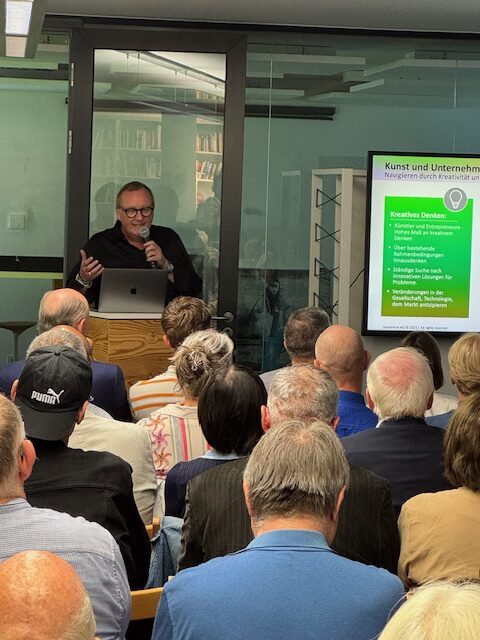THANK YOU – PRESS RELEASE
Thank You
What an unforgettable evening at IN BETWEEN – Celebrating 25 Years of Priska Pasquer Gallery in collaboration with neuland.ai.
With the inauguration of neuland.ai’s third floor, we launched the company’s first corporate art collection — created to actively nurture the dialogue between art and artificial intelligence. This evening marked not only a celebration of the gallery’s 25th anniversary but also a new chapter where Art Meets AI.
We are deeply grateful to everyone who joined us in Cologne.
A heartfelt thank you to Mischa Kuball, Johanna Reich, Karl-Heinz Land, the neuland.ai team, and all the participating artists for shaping an inspiring night of art, dialogue, and vision for the future.
Danke
Welch ein unvergesslicher Abend bei IN BETWEEN – 25 Jahre Galerie Priska Pasquer, in Zusammenarbeit mit neuland.ai.
Mit der Einweihung des dritten Stockwerks von neuland.ai haben wir die erste firmeneigene Kunstsammlung eröffnet – geschaffen, um den Dialog zwischen Kunst und Künstlicher Intelligenz aktiv zu fördern. Dieser Abend war nicht nur eine Feier des 25-jährigen Jubiläums der Galerie, sondern markierte auch ein neues Kapitel, in dem Art Meets AI.
Wir sind zutiefst dankbar für alle, die mit uns in Köln dabei waren.
Ein herzliches Dankeschön an Mischa Kuball, Johanna Reich, Karl-Heinz Land, das Team von neuland.ai und alle teilnehmenden Künstler:innen, die diesen inspirierenden Abend voller Kunst, Dialog und Zukunftsvision gestaltet haben.
New Spaces on the Rhine for a Dialogue Between Art and AI
Cologne, Konrad-Adenauer-Ufer 83. Directly on the Rhine. A new space has opened — and with it, a new field of tension: art and artificial intelligence entering into a dialogue that seems long overdue. Neuland.ai, a Cologne-based AI company, together with Galerie Priska Pasquer, has created a place where the question is not whether technology can replace art, but how it transforms our perception.
At the opening, which also marked the 25th anniversary of Galerie Priska Pasquer, works were presented by artists whose names shape the international scene: Aljoscha, Elena Bajo, Banz & Bowinkel, Jane Benson, Zohar Fraiman, Fabian Herkenhoener, Pieter Hugo, Rinko Kawauchi, Mischa Kuball, Karen Lofgren, Radenko Milak, Warren Neidich, Johanna Reich, Tristano di Robilant, Albrecht Schäfer, Charlie Stein, Genaro Strobel, Fiona Valentine Thomann, David Zink Yi, Albert Renger-Patzsch, and August Sander. Yet more important than the list of works was the stance conveyed by the evening: art is not decorative accompaniment to digital innovation, but an independent and critical space of resonance.
“Artificial intelligence expands our possibilities of expression, but the creative vision remains profoundly human,” emphasized gallerist Priska Pasquer. Machines can open new perspectives, sort data, generate images, perhaps even surprise us. But art does not live from technology. It lives from meaning, from vision, from the ability to make the invisible visible.
In this sense, the evening echoed the reflections of philosopher Markus Gabriel. For him, art is “autonomous” — radically independent of markets, trends, or fashions. Its value is not measured in prices or popularity, but in its structural power: art changes our being, shapes perception, opens spaces in which we can understand the world anew. “That is what makes it radically independent,” writes Gabriel — meaning that art resists total appropriation, even by technology.
The true point of this dialogue: the more digital our world becomes, the stronger our longing grows for the analog. The more AI generates images, the more we seek the aura of the original. The more perfectly algorithms reproduce structures, the greater the need for fractures, chance, and the human hand. AI can provide additional tools — new “brushes,” so to speak — but the existential dimension of art remains reserved for humans.
“With our art collection, we want to make precisely this dialogue visible,” explains Karl-Heinz Land, founder of neuland.ai. It is a remarkable step for a technology company: the willingness to understand art not as an accessory, but as a critical mirror and partner.
Thus, a place has been created on the Rhine that seeks to be more than an office or a gallery. It is a space for thought. A space where art and AI do not compete , but resonate. A space that reminds us that the future is not made of data alone, but of meaning.




